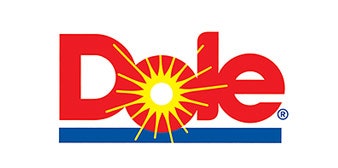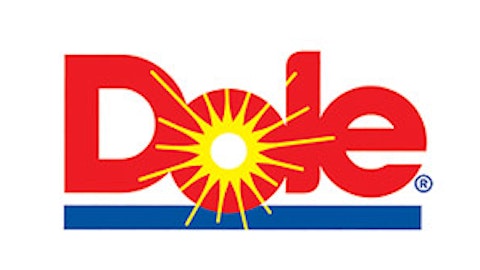
Going bananas
Last year was one of continued transformation and recovery for Chiquita Brands International, Inc. (NYSE:CQB), even if the income statement indicated otherwise. Back in 2010, the company was crippled by sky-high fuel costs and impossible market prices for bananas. Since then, the company has recovered quite a bit, though the market still values it cautiously.
For the year, the company came away with a net loss of $408 million, compared with a profit of $57 million in 2011. One would think that would be enough to send the stock straight down, but the company needed to reposition itself and has (hopefully) emerged a prepared competitor for this year. That $408 million loss included one-timers such as a $180 million impairment charge related to goodwill and trademarks of its salad business (Fresh Express has been a loser for the company as grocers have switched focus to private labels), $130 million in valuation allowances against deferred income tax assets, $35 million restructuring and relocation charges (the company moved its headquarters to Charlotte, N.C.), and a $32 million impairment charge for the company’s Danone joint venture. Without those items, the net loss would have been $31 million.
Chiquita Brands International, Inc. (NYSE:CQB) CEO Ed Lonergan wasn’t apologetic about the big upfront spending. He believes the company is in place to add “profitable volume” to the core banana and salad businesses for 2013. Lonergan came in as a replacement CEO this past October. He has a history of working with money-losing businesses — shedding poor-performing assets and emphasizing the moneymakers. Lonergan’s restructuring is estimated to save in the neighborhood of $60 million per year, but that could go up as time goes on. The company has been in desperate need of a margin boost for some time, and some analysts believe Lonergan is the one to do it.
The details
Let’s look beyond the headline numbers to identify any positive trends, if they exist.
For the year, banana sales ticked down two points to $2 billion because of a product supply surcharge in North America in 2011. U.S.-to-euro exchange rates hurt the company in Europe to the degree of $63 million in sales and $45 million in operating income.
One of the more encouraging factors for the company is the reduction in SG&A costs. For 2012, the company brought down SG&A by $25 million to $276 million. Also encouraging is the company’s recent refinancing that greatly extends debt maturity dates — reducing debt coverage payments in coming years and giving the company greater financial flexibility.

